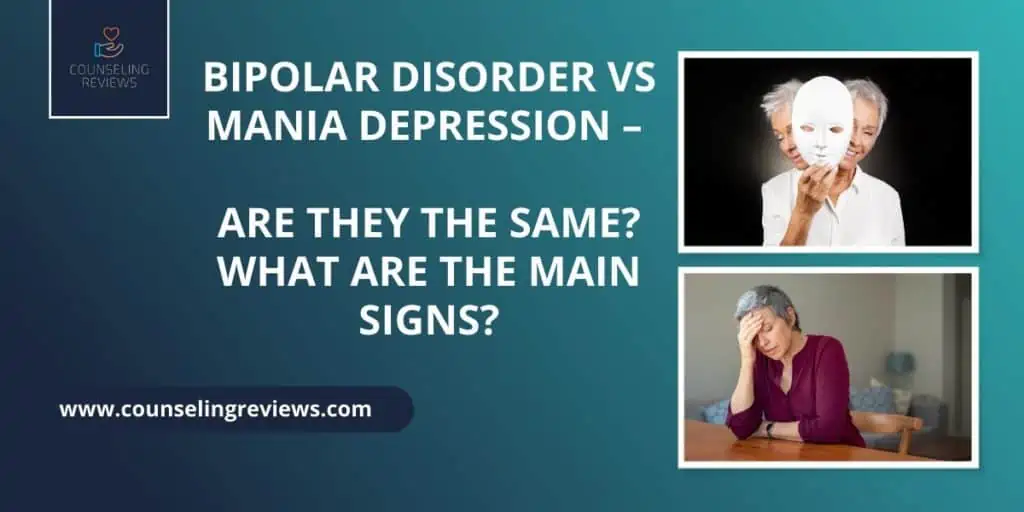Mental health is becoming more openly discussed. There is a movement ensuring those suffering don’t suffer alone. More importantly, there is a push to ensure that those experiencing any form of mental health issues know where to go and that there is help for them. Two examples of mental health disorders that are suddenly becoming prevalent is bipolar disorder and mania depression.
Understanding the Terms
With mental health, it is crucial to know the proper terminology. It is also essential to know that it is not always easy for those who suffer from bipolar or depression to communicate or express what is being experienced. People with bipolar disorder sometimes prefer to be labeled correctly. There are two types of bipolar disorders, it is bipolar I disorder, bipolar II disorder.
Bipolar Disorder Vs. Manic Depression – Are They the Same?
Bipolar is defined as someone who experiences extreme highs and lows, normally sadness and happiness are the two emotions that are often experienced. With bipolar, it comes suddenly with no warning sign. Unless the person has been properly diagnosed, they may not realize they are bipolar. The highs in bipolar are known as mania, while the lows are called depression.
For many, depression is often associated with feelings of sadness; however, depression is much more than that. It can impact ones feeling of self-worth as well as affect their outlook on life. Another thing to note with depression is that there are periods of depressive moments followed by feelings of normalcy.
Bipolar and depression are not entirely different diagnoses, but they describe the aspects of one another.
One thing that individuals who are diagnosed with bipolar and depression experience are mood swings.
Knowing the Signs and Who Is Affected
Given that there are highs and lows associated with bipolar. The signs and symptoms may vary depending on what the individual is experiencing.
Signs to be aware of when someone is experiencing mania (highs) of bipolar are:
- Wired – full of energy
- Not sleeping
- Overconfidence
- Distracted
- Mania or hypomania
When it comes to the depressive symptoms of bipolar, the signs are:
- A constant state of sadness
- Drastic weight loss or gain
- Loss of interest in hobbies
- Loss of energy
- Thoughts or obsession with the idea of death
A diagnosis of bipolar and depression is shared amongst the late teens and early ’20s for many. Bipolar is one form of mental health disorder that affects women and men equally. It is a disorder that does not discriminate based on gender, race, or age. Some people even develop cyclothymic disorder, if their bipolar or depression disorder go untreated.
When determining who is at risk, genetics, and the environment play an equal role. Numerous studies have shown that bipolar or depression have different brain activities compared to those who do not experience any signs of this disorder.
Research has shown a potential link between parents passing a gene to their children, which predisposes them to mental health disorders. There is plenty of research that needs to be conducted to show a link between family members and mental disorders. However, what is certain is that understanding the signs and when to see a professional is critical.
Drugs or alcohol have also been examined as possible factors that increase one’s susceptibility to bipolar disorders or depression. One reason for this conclusion is that those who have experienced substance abuse have been found to have a diagnose of bipolar disorder.
Main Course of Treatment
When it comes to mental health disorders, there are two possible approaches, one that involves medication, while the other is relying on support groups and therapy. This can come in the form of online counseling. Most teens and children with bipolar disorders tend to enjoy family counseling to ensure that every member is aware of their mental state. Treatment for bipolar and depression is a lifelong process that sometimes requires a mix of medications such as mood stabilizers.
Living with a mental health disorder means not just seeking treatment. Still, it is also about making life changes and adaptations. Sometimes to help with these changes entering family counseling can benefit everyone who may not understand these changes.
Conclusion
Bipolar and depressions are two mental disorders that impact not just the individual living with it but the family and friends as well. For those diagnosed at a young age, sometimes participating in counseling for kids or counseling for teens can help them learn how to cope with what they are experiencing. It is also an excellent avenue for useful tips for managing their mood swings until they become adults.




